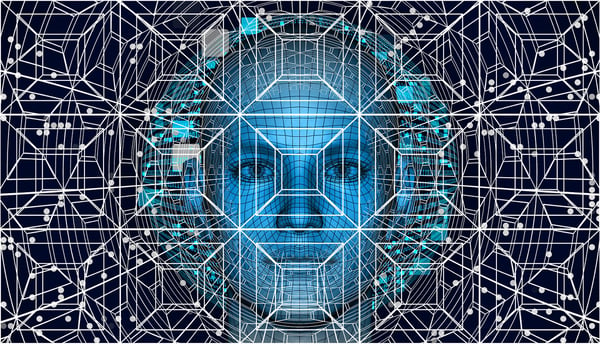Study Overview | How DermEngine’s AI Algorithms Are Shaping The Future of Dermatology
The power of artificial intelligence (AI) for the classification of pigmented skin lesions is raising promising results, showing great potential as a collaborative tool to refine the accuracy of medical professionals in identifying skin conditions such as melanoma in a clinical setting.
1. AI proves indispensable for improved classification accuracy of pigmented skin lesions
In a recent article published by Tschandl et al (2019) in The Lancet Oncology Journal, a comprehensive study on the compared accuracy of pigmented skin lesion classification between a diverse group of medical professionals and AI algorithms was presented. Results show AI algorithms produced an average of 2.01 more accurately classified images than human professionals. "The sensitivity of human experts was 81.2% compared to 88.5% for AI algorithms. As well, prediction of malignancy was 95.8% for human readers, while the algorithms reached 96.3%. For a sensitivity of around 96%, the specificity for the algorithms was about 80%, while the average human readers reached a mean sensitivity of 76%, and a specificity of 78%", mentions Dr. Maryam Sadeghi, CEO of MetaOptima Technology Inc, whose company developed the best scoring AI algorithms in this study. "Even when a group of experienced human professionals performed better than the average, AI algorithms still outperformed human readers overall" she adds.
To test for comparative results, the human side was represented by medical professionals comprised of certified dermatologists, dermatology residents and GPs with dermoscopy training, with clinical experience ranging from less than one year to more than ten year’s experience, with this latter group regarded as experts. The AI counterparts were contributed by a list of skin lesion image classification algorithms developed by several public institutions and private organizations as part of the 2018 International Skin Imaging Collaboration (ISIC) Challenge.
Although all algorithms readings were analyzed and taken into account, comparative results reported are focused on the top 3 scoring algorithms - those from MetaOptima, DAISYLab and Medical Image Analysis Group. As reported in the manuscript, MetaOptima’s algorithms represented the highest scoring among the ones utilized, which shows the integrally comprehensive approach towards advancing this technology as the main current pursuit of the company.
Medical professionals were tested against batches of 30 images at a time from a total pool of 1,511 selected pigmented skin lesion pictures inclusive of a total of seven skin conditions (melanoma, melanocytic nevus, basal cell carcinoma, actinic keratosis, benign keratosis, dermatofibroma or vascular lesions), both benign and malignant. In turn, AI algorithms were fed a training set of 10,015 images while tested against a pool of 1,195 documented lesions. All images derived from two large datasets originating from the University of Vienna, Austria and a private skin cancer practice from Queensland, Australia.
Results were weighed for readings involving image classification of three different targeted groups, either (i) “balanced” for an even distribution of benign and malignant lesions within the image test set, (ii) “benign” or “malignant” with a predominant set of one type of image set or the other in the classifying groups, or (iii) “random” for no given represented group. In every case, algorithms were able to outperform human readers in the accuracy of lesion identification, with the only exception of experts scoring higher for readings of malignant images. Even when considering the inherent limitations of the experimental model due to lack of additional data such as anatomical location, age or sex -variables that would be considered in real-life scenarios- this leaves no doubt about the impressive power of algorithms to assist in image classification among other complex tasks.
Picture courtesy of Dr. Philipp Tschandl & Lancet Oncology
The potential AI algorithms hold to analyze complex workflows within the medical field is starting to show its true power through the results exposed by Tschandl et al. What is even more important than understanding the technicalities included in this technology is to appreciate the capacity that it can bring to real-life clinical settings by contributing to improved medical decisions.
The study and diagnosis of a diverse group of skin conditions including melanoma -the most life-threatening type of skin cancer- heavily relies upon the experience of human professionals. Their medical expertise is the judging ground to rule out benign or malignant lesions from the analysis of dermoscopic images. However, the complex nature of pigmented skin lesion images makes it difficult to achieve high accuracy for every clinical case, potentially resulting in a large number of false positives and negatives alike. Putting patients through the inconvenience of undergoing unnecessary surgical procedures which can leave permanent physical and psychological scarring is as much of a challenge as to overlook an actual life-threatening malignant lesion.
This is where AI can play its most relevant and helpful role: algorithms naturally possess the power to analyze and learn from extremely large datasets. So much so, that it would almost be impossible for an individual human being to manage the amount of information a machine can in the same time period. Contrary to replacing human professionals, this is an opportunity for machines to become strategic allies for improving daily workflows by increasing the diagnostic accuracy of skin cancer cases. As demonstrated by MetaOptima’s intelligent dermatology solution, DermEngine, AI can be seen as a smart assistant - a silicon-made colleague capable of providing educated insight on a given case based upon the collective knowledge obtained from a large number of diverse clinical studies. To this effect, they can act more as an interactive, real-time portable library of past documented cases to support better informed clinical decisions on a current case.
By opening up new streams to improved proficiency in clinical support, AI is developing a promising position within current dermatology practices. Despite further research needed to accommodate for real-life scenarios in algorithm analysis, this technology represents a future-proof path to provide tailored clinical support for various groups within the healthcare cycle. As much as technology is transforming every other area of life, healthcare and particularly dermatology are the current witnesses to a revolution that has AI at centrestage.

Final thoughts
The unavoidable surge of AI is proving disruptive in the healthcare field and prompting new procedures and workflows that were virtually unimaginable a mere decade ago. Dermatology is within the disciplines which machine learning can strongly benefit by enhancing the accuracy in decision-making. As this technology becomes more refined and integrated with real-life practice, it is set to bring a new era of intelligent analysis that can positively affect millions of patients’ lives and healthcare stakeholders worldwide with better, safer and cost-effective care.
-The MetaOptima Team
Are you interested in staying at the forefront of intelligent dermatology? See how DermEngine's cloud-based technology can streamline your practices today by booking your demo!
Featured image credit: "Artificial Intelligence, AI" by mikemacmarketing is licensed under CC BY 2.0
Topics: Dermatology AI Intelligent Dermatology Services Artificial Intelligence in Dermatology AI In Healthcare EMR Dermatology EMR Dermatology Software Intelligent Dermatology Software Dermatology EMR Software EMR Software Cloud Based EMR ISIC2018 Intelligent Dermatology





